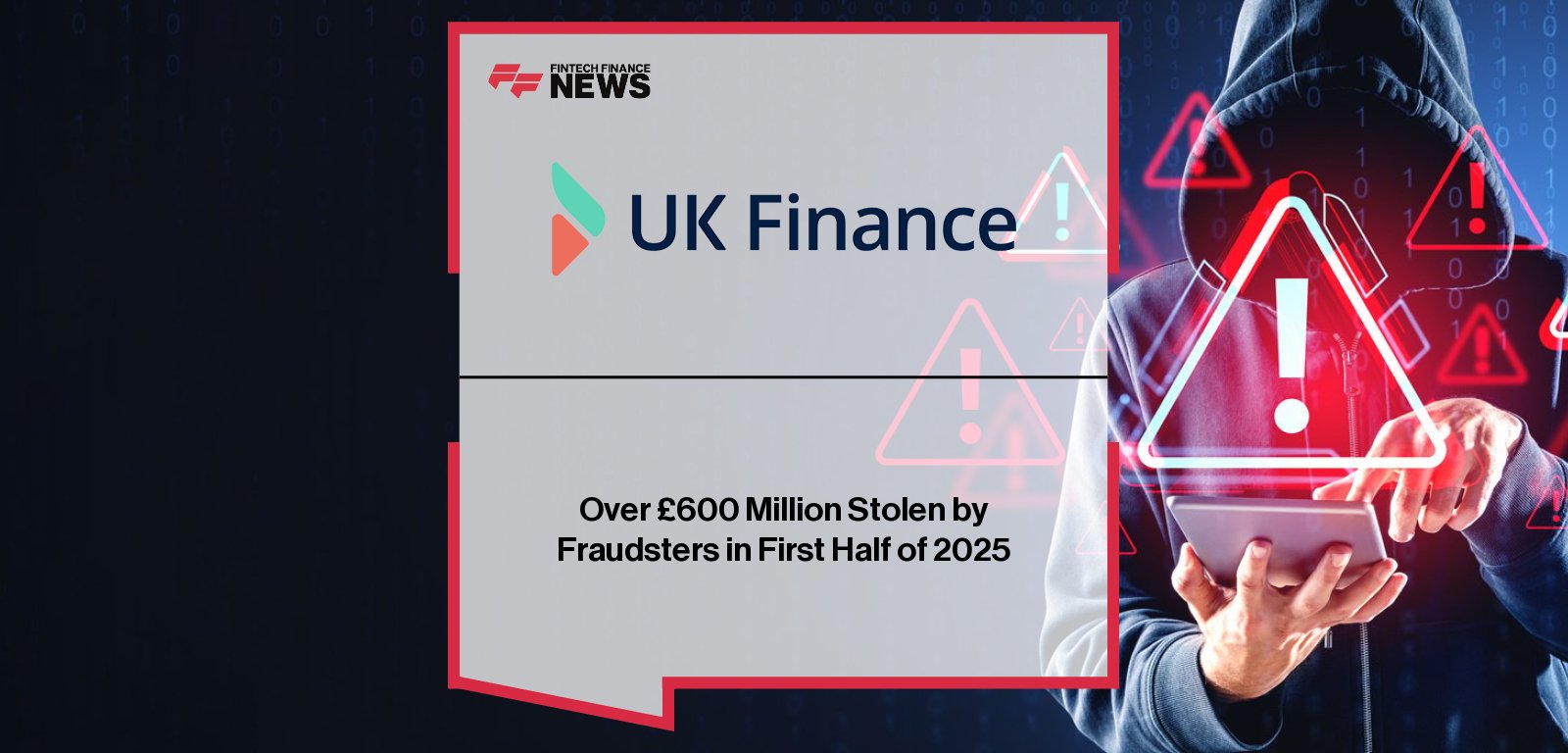Breaking News

Over £600 Million Stolen by Fraudsters in First Half of 2025
UK Finance today releases its half year fraud report, detailing the amount its members reported as stolen through payment fraud and scams in the first half of 2025.
- Criminals stole £629.3 million in the first half of the year, a three per cent increase on the same period in 2024.
- There were over 2.09 million confirmed cases of fraud, a 17 per cent increase on this time last year.
- Banks prevented £870 million of unauthorised fraud through advanced security systems, 20 per cent more than in the first half of 2024 and equivalent to 70p in every £1 attempted.
- 66 per cent of APP fraud cases started online and 17 per cent started through telecommunications networks.
- The financial services sector continues to be at the forefront of efforts to tackle fraudsters and protect customers. UK Finance is calling on the government’s upcoming Fraud Strategy to ensure all sectors are accountable in preventing fraud.
Ben Donaldson, Managing Director of Economic Crime at UK Finance, said: Fraud continues to be a major threat to our society and our economy, and criminals continue to adapt ways to steal victims’ money and funnel significant sums of money to criminal enterprises, impacting society greatly.
Despite the ongoing investment and prevention measure by the industry, the majority of fraud originates outside the banking system, online and over the phone, where manipulation begins long before any payment is made.
The scale of the threat is not commensurate with the current level of government investment in countering it or the insufficient action by other sectors. The government must prioritise prevention and hold the social media and telecommunications industries to account in its new Fraud Strategy.
Unauthorised fraud losses
Losses from unauthorised transactions across payment cards, remote banking and cheques were £372 million in the first half of this year, a decrease of three per cent from the same period in 2024. The total number of recorded cases was just over 1.98 million, representing a 19 per cent increase.
Within these figures we saw some notable movements year on year:
- Cheque fraud losses were down 41 per cent
- Remote banking fraud losses were down nearly a quarter (minus 24 per cent).
- The number of card not present fraud cases, which occurs when a criminal uses stolen card details, increased by 22 per cent
Banks are reporting ongoing challenges with criminals tricking victims into handing over one-time passcodes, which then allows criminals to register digital wallets and make fraudulent payments.
Banks prevented £870 million of unauthorised fraud during the first half of the year, 20 per cent more than a year ago. Victims of unauthorised fraud cases such as these are legally protected against losses and UK Finance research indicates that customers are fully refunded in more than 98 per cent of these fraud cases.
Authorised Push Payment fraud losses
Authorised push payment (APP) fraud losses were £257.5 million in the first half of 2025, a 12 per cent increase on the same time last year. APP cases fell by eight per cent to 110,747.
As with unauthorised fraud, within these figures we saw some notable movements year on year:
- The main reason for the increase of APP losses was investment scams, when a criminal convinces their victim to move money into a fictitious fund or to pay for a fake investment. £97.7 million was stolen through this type of fraud, a 55 per cent increase on the same time last year. Investment fraud cases often involve larger amounts of money and it can take longer for individuals to recognise the scam. This means some of the losses reported will relate to cases that started in previous years.
- The losses from purchase scams, where a victim pays in advance for goods or services that are never received, continued to be the most common form of APP fraud and accounted for 72 per cent of all APP cases. Whilst losses increased by 10 per cent, cases fell by seven per cent.
- The losses from romance scams, where victims are tricked into believing they are in a relationship, increased by 35 per cent.
- Losses and cases relating to the impersonation of police or bank officials, and other forms of impersonation, dropped to a series of lows in the first half of this year, driven down in part by education campaigns. Total volume of cases fell by 16 per cent and losses fell by 14 per cent.
In total, £159.2 million of APP losses was returned to victims in H1 2025, representing 62 per cent of the total amount stolen. In October 2024, the Payment Systems Regulator (PSR) introduced new reimbursement rules for APP fraud. They recently reported that 88 per cent of in-scope APP fraud losses were reimbursed. UK Finance’s data covers a wider range of payments and account types than those covered by the PSR rules which means they are not directly comparable.
Authorised Push Payment enablers
APP fraud continues to be driven by the abuse of online platforms and telecommunications.
66 per cent of APP fraud cases began on online platforms, leading to 30 per cent of losses. 17 per cent of cases came from fraud originating on telecommunications platforms, as set out in the table below.
Upcoming government fraud strategy
UK Finance is calling on the government to make prevention a central piece of its upcoming Fraud Strategy. The financial services industry cannot fight fraud alone, technology and telecommunications sectors need to be incentivised to contribute financially to fraud reimbursement, as well as sharing expertise and intelligence effectively.
Jonathan Frost, global advisory director at BioCatch said:
Whilst UK banks prevented £870 million worth of unauthorised fraud in the first half of 2025, equivalent to 70p out of every pound, fraudsters continue to prove among the world’s greatest innovators, making away with more than £600 million from UK consumers in just six months. The continued growth of authorised push payment (APP) fraud remains a major concern. Stopping APP fraud will require more than just technology. It necessitates both better and cross-industry collaboration. The UK market is primed for real-time intelligence-sharing and should embrace it to continue leading the global fight against fraud.
People In This Post
Companies In This Post
- Finance Platform LemFi Launches Remittance Services in Australia as Global Expansion Continues Read more
- Cytora and Altitude Intelligence Partner to Embed Advanced Geospatial and Climate Risk Intelligence into Insurance Workflows Read more
- Visa Acceptance Platform Now Supports Tap to Pay on iPhone, Boosting Contactless Acceptance for Merchants Read more
- How Google Is Helping Fintechs Navigate Regulation and Innovation Read more
- DataHaven on What Truly Defines a Real Insurance Technology Partner Read more













